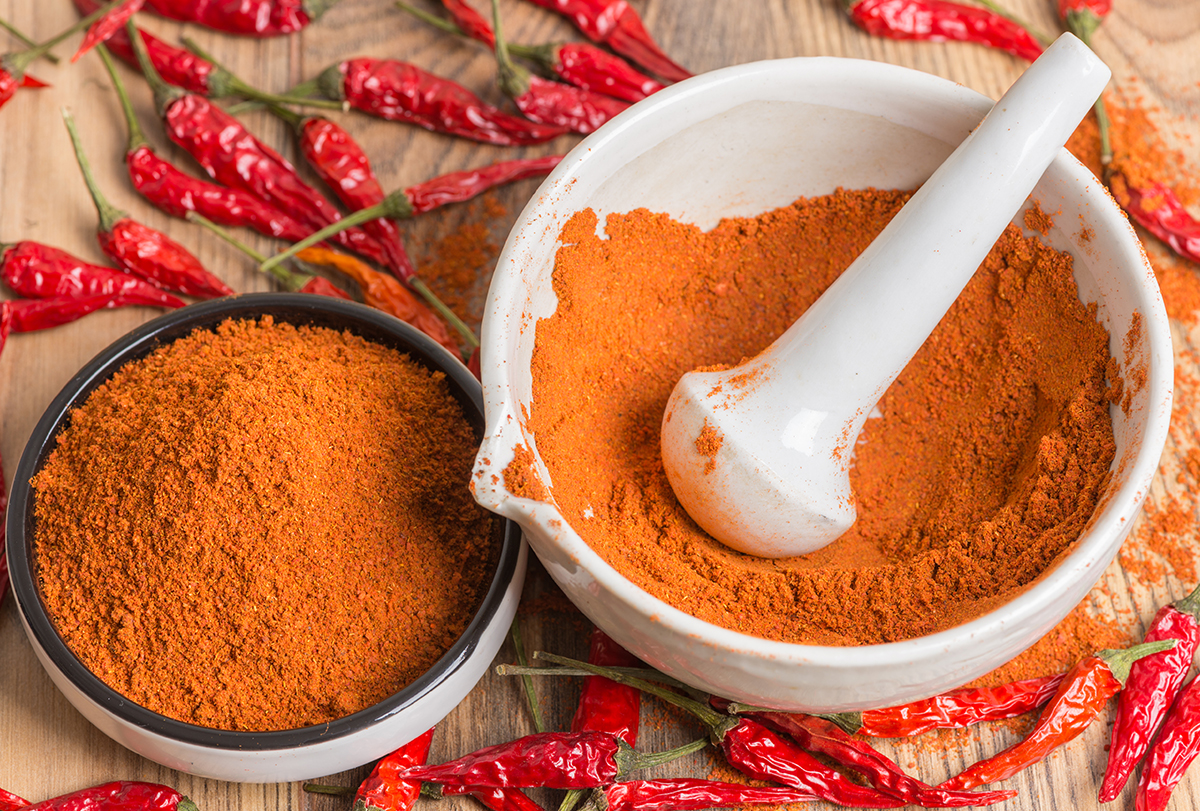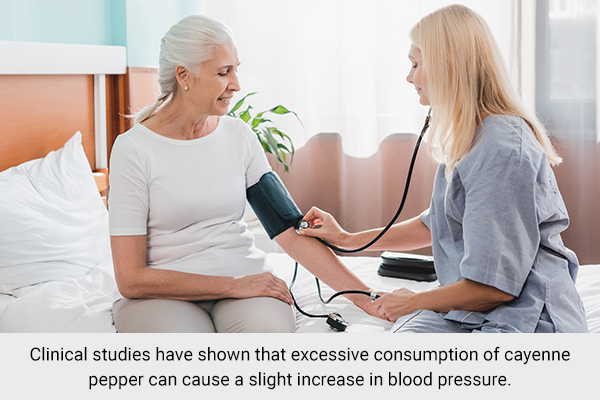In this article:
Cayenne pepper is the dried extract obtained from capsicum. It is a vibrant-red powder used to add minimal spice to dishes. It was first used as an analgesic or mild painkiller to treat and manage various painful conditions. (1)

Its main active compound, capsaicin, is what makes it a potent ingredient. It has been widely studied for its anti-obesity effect. (2)
Recently, cayenne pepper has emerged as a solution to hypertension due to capsaicin’s ability to lower blood pressure.
So, including cayenne pepper in your daily diet may help lower blood pressure.
How Does Cayenne Pepper Lower Blood Pressure?
Capsaicin has been known to benefit high blood pressure in various ways: (3)
- It releases substances that dilate blood vessels, consequently easing the pressure of blood against the walls of blood vessels, which means that it opens up the blood vessels and helps increase blood flow.
- It induces diuresis (increased production of urine) to increase the excretion of excess sodium from the blood.
- It prevents calcium from entering the cells of the heart and blood vessels, causing relaxation and reducing blood pressure.
In animal studies, rats fed with cayenne pepper extracts had lower blood pressure. (4)
Though more extensive research is needed to establish results in humans, one study has reported the blood pressure-lowering ability of cayenne pepper via capsaicin. (5)
Is Supplementation with Cayenne Pepper Safe?

There is no established evidence for cayenne pepper dosage to reduce blood pressure. Because evidence from clinical trials shows a mild increase in blood pressure from excessive cayenne pepper consumption, (6) it is better to avoid taking cayenne pepper supplements.
You can use cayenne pepper in your daily cooking to obtain its benefit.
Precautions to Consider
High blood pressure is a serious condition, which can cause serious health conditions if left unmanaged. While using natural remedies is a safe and effective way to lower blood pressure, they should not be solely relied upon to manage blood pressure.
Practical Takeaway
- Cayenne pepper can lower blood pressure by relaxing the muscles of blood vessels and thus reducing elevated blood pressure.
- Cayenne pepper supplementation is not recommended due to a lack of research.
- You can use 1 tsp of cayenne pepper in daily cooking to reap its benefits.
- Cayenne pepper should not be solely relied upon to manage high blood pressure.
- Was this article helpful?
- YES, THANKS!NOT REALLY


